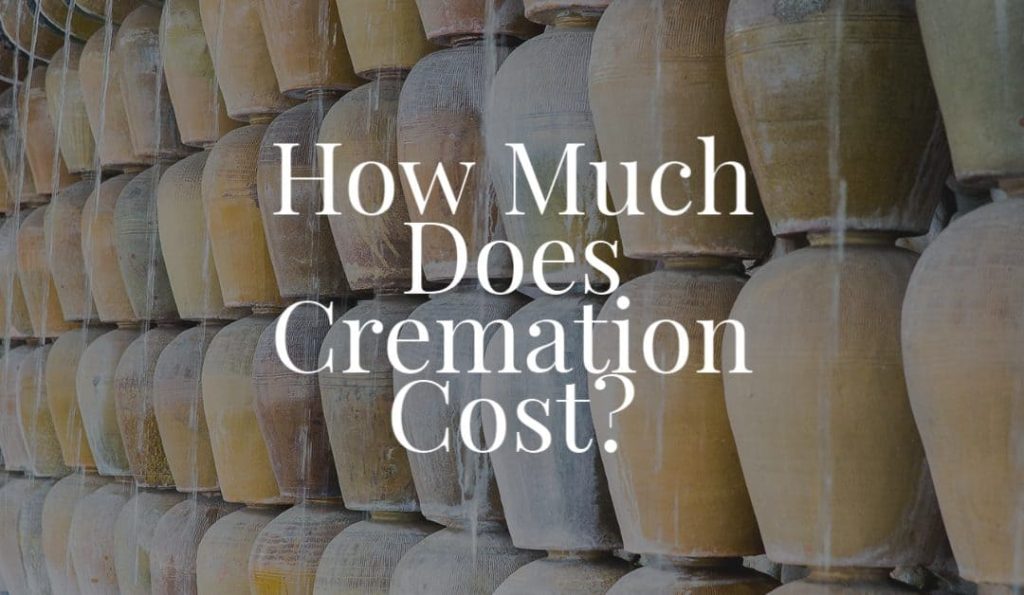Cremation, the process of reducing a body to ashes through high-temperature burning, has become an increasingly popular alternative to traditional burial in recent years. Apart from its environmental benefits, cremation is often chosen due to its affordability compared to traditional funeral services. However, the cost of cremation can still vary significantly depending on several factors. In this article, we will explore the different expenses involved in cremation and provide a comprehensive understanding of how much does a cremation cost.
1. Basic Cremation Costs
The fundamental expense associated with cremation is the cremation service itself. Basic cremation generally includes the process of cremating the deceased and the necessary documentation. On average, the cost of basic cremation in the United States ranges from $1,000 to $3,000, with the exact price contingent on the location, funeral home or crematorium chosen, and the level of service provided.
Several factors can impact the cost of basic cremation:
a) Geographical Location
The cost of cremation services varies significantly from one state to another and even within cities. Areas with a higher cost of living typically have more expensive cremation services. Urban centers and regions with a higher demand for cremation facilities may also command higher prices.
b) Funeral Home or Crematorium
Different funeral homes and crematoriums have their pricing structures. The level of service, facilities, and reputation of the provider can all influence the cost. It is advisable to research and compare prices from various providers in your area to find the most cost-effective option.
c) Optional Services and Add-ons
Beyond the basic cremation, funeral homes may offer additional services that can increase the overall cost. These may include memorial services, visitation hours, or personalized urns. Families should carefully consider these add-ons and assess whether they align with their budget and preferences.
2. Factors Influencing Cremation Costs
While basic cremation serves as a starting point for understanding expenses, several other factors can impact the overall cost:
a) Cremation Container or Urn
Before the cremation process, a container is required to hold the body. This can range from a simple cardboard box to a more elaborate urn made from materials like metal, ceramic, or wood. The type of container chosen can affect the cost. Those seeking more eco-friendly options can opt for biodegradable urns made from materials like bamboo or recycled paper.
b) Transportation and Body Retrieval
If the death occurs outside a hospital or hospice facility, additional fees may apply for transporting the deceased to the cremation facility. The distance between the place of death and the crematorium will impact these costs. Additionally, if the death occurs in a different city or state, there may be additional expenses associated with transporting the body to the desired location.
c) Death Certificates and Permits
Before cremation, legal documentation is required, including death certificates and permits. The costs for obtaining these documents can vary depending on the location and specific requirements of the state or country.
d) Cremation Timing
Urgent or expedited cremations may incur higher fees. Families should plan accordingly to avoid additional costs associated with last-minute arrangements.
3. Additional Considerations and Cost-saving Measures
a) Direct Cremation
Direct cremation offers a cost-effective alternative to traditional funeral services. With direct cremation, the body is cremated immediately after death without a funeral service or viewing. This approach often results in lower expenses and provides families with more flexibility to arrange memorial services at a later date, potentially in a location that holds significance for the deceased.
b) Preplanning and Prepayment
Some individuals choose to preplan and prepay for their cremation services. By doing so, they lock in current prices and alleviate the financial burden on their loved ones. Preplanning also allows for personal preferences to be recorded, ensuring that the cremation aligns with the individual’s wishes.
c) Consider Direct Donation to Science
In some cases, individuals may choose to donate their bodies to science for research and medical education purposes. This option can eliminate cremation costs entirely, providing a more affordable alternative while contributing to a meaningful cause.
Conclusion
The cost of cremation can vary based on numerous factors, from geographical location and the choice of funeral home to additional services and optional add-ons. Basic cremation costs serve as a starting point, with various other expenses potentially increasing the overall price. Families should carefully consider their preferences and budget while exploring cost-saving measures like direct cremation and preplanning. Ultimately, cremation offers a more affordable and environmentally conscious option for laying loved ones to rest.

